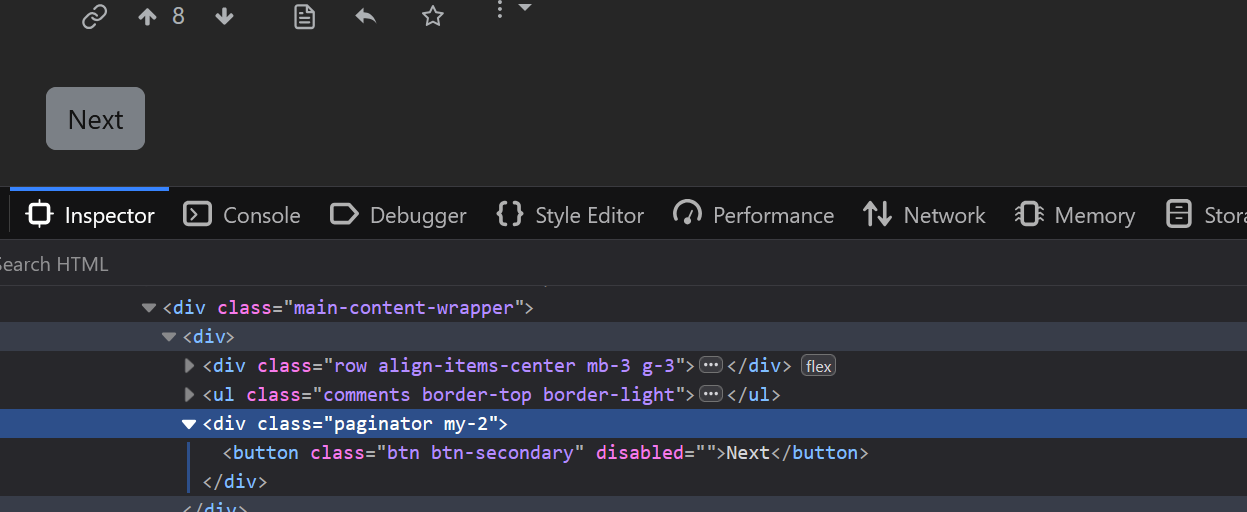

hahaha no failfandomanon is extremely at Dreamwidth, but I think the wankiest people mostly moved to other places in recent years.
You’re thinking of my brother, Zathras.


hahaha no failfandomanon is extremely at Dreamwidth, but I think the wankiest people mostly moved to other places in recent years.


as a former member of multiple livejournal fanfic circlejerks, I am so sad that LW didn’t join the rest of LJ in (1) getting off or (2) being mean on fandom_wank, and instead decided to create the torment nexus.


If you always bet on “everything confusing that weirdos say is a euphemism or proxy for Jews or Black people”, you will beat the house. Canadians, lizards, trans people, common punctuation marks, apparently also the seelie court I guess.


oh lord I cannot imagine how they would torment nexus the tao te ching.
…wait yes I can. they’d decide that LLMs are the tao. “What’s perfectly whole seems flawed, but you can use it forever.” “To know without knowing is best.” “If those in power could hold to the Way, the ten thousand things would look after themselves.”


yeah, I knew about kurzweil reading machines for years before I connected them with ray kurzweil, and I don’t know how much of his tech ended up in speech rec during the scansoft / dragon systems / nuance / lernout and hauspie katamari years, but that tech has enabled me to be an independent working adult for more than 20 years. So I owe him a debt of gratitude, but also, he needs to not be on his bullshit.


Remember when our industry cared about loading times?


This is so cathartic to read.
I have worked with multiple static sites delivered with React, because somebody built an enterprise design system which is so tightly tied into React that it can’t be applied any other way.
From the comments:
Insect welfare (unlike woke identitarian proliferation) is not a priori wrong.
a community whose commendable openness to unbiased discussion of any idea, uh huh.


if we’re lucky, silicon valley will be eaten by a grue.


No, all you lawyers explaining to me how the practice of law works in the U.S., you would totally benefit from GPT. Complete with bonus:


I use it, but at least on my browser the next button is disabled so I can only see the most recent page of updates. I treat that as a the jank is a feature moment, though; if there’s more than one page of new comments, I’m forced to stop reading.



Pour one out for opera presto, which I will always mourn.


One last hurrah for the EPA and the clean air act before the scotus shanks the administrative state in a day or two.


Marx (who to be fair was operating in a very different global economy) explicitly excluded servants and other service labor from the proletariat, because he had an extremely industrial (cough gendered) definition of “productive labour.” That being said, he was friends, intellectual collaborators, and possibly lovers with the housekeeper.
Disclaimer: I am no marx historian; my knowledge of marxist theory tends toward literary analysis. I may be simplifying to the point of wrong.


To be clear, I was critiquing his smug intolerance to be people who don’t meet his standards of so-called leftist perfection, when he, himself, is as complex as anyone else. I was not critiquing his being married or his living under capitalism.


When I was listening to the most recent episode of the Maintenance Phase podcast which was all in on mocking J. Michael Bailey with a special dig at autogynephilia theories, I went to go see if David had any history policing weirdos on Bailey’s wikipedia page, as an excuse to bring the episode in for a stubsack link. And he didn’t, which means, once again, booring.


He says some pretty ignorant stuff in this post that undercuts his argument, though:
Here’s the problem: establishing that AI training requires a copyright license will not stop AI from being used to erode the wages and working conditions of creative workers. The companies suing over AI training are also notorious exploiters of creative workers, union-busters and wage-stealers. They don’t want to get rid of generative AI, they just want to get paid for the content used to create it. Their use-case for gen AI is the same as Openai’s CTO’s use-case: get rid of creative jobs and pay less for creative labor.
This isn’t hypothetical. Remember last summer’s actor strike? The sticking point was that the studios wanted to pay actors a single fee to scan their bodies and faces, and then use those scans instead of hiring those actors, forever, without ever paying them again. Does it matter to an actor whether the AI that replaces you at Warner, Sony, Universal, Disney or Paramount (yes, three of the Big Five studios are also the Big Three labels!) was made by Openai without paying the studios for the training material, or whether Openai paid a license fee that the studios kept?
The writers’ and actors’ strikes, in an overwhelmingly unionized workforce, did not say “hey, we as a labor force want a cut of the dirty GPT lucre”. Instead, they said not today, satan to studios working with GenAI at all. And won. Those writers and actors, who are overwhelmingly huge supporters of copyright and moral rights, defeated the rich assholes at the Big Five not by throwing up their hands and giving all their creative output to the glurge machine, but by unionizing and painful, hard-won solidarity.
Whether SAG-AFTRA and the AFM (or non US equivalents) can organize as effectively for musicians and lyricists is unclear. But Cory, who claims to be a leftist, is defaulting to “you as a musician should work for free” and not “you as a musician should organize to counter the power of capital”, and that’s about as leftist as Grimes posing with The Communist Manifesto.
It is not, in fact, bad that copyright applies to a wider group than publishers, unless you are using “publisher” extremely broadly to apply to “creators”.
If “someone gets attacked for posting an image on social media”, that rarely means “lawyers came after me because I posted a screenshot of a page from Sandman”. It often means that the poster took someone else’s art, snipped off the artist’s signature, and posted without attribution, and the artist is rightfully angry. Copyright is what enables that artist to continue to eat and make more art. The same goes for music, or software, or movies.
Sure, the system is horribly abused by uneven power structures, as every system in the world is. For music especially, we all know that the takedowns are usually issued by people who have nothing to do with the creation of the protected work, because of the way licensing and rights grants work in that industry. Automated takedown systems (which have to exist because of the scale of online content) also have no reasonable appeal mechanism, and the people making the decisions don’t (and can’t) make reasonable assessments about fair use and transformative works.
I’m not saying that everyone who participates in piracy is a bad, wicked thief–I absolutely participate in it myself. But copyright is not the villain here; that’s just trying to make us feel justified about our actions. Someone made a creative work I enjoyed, and I don’t have a moral right to the product of their effort for free.